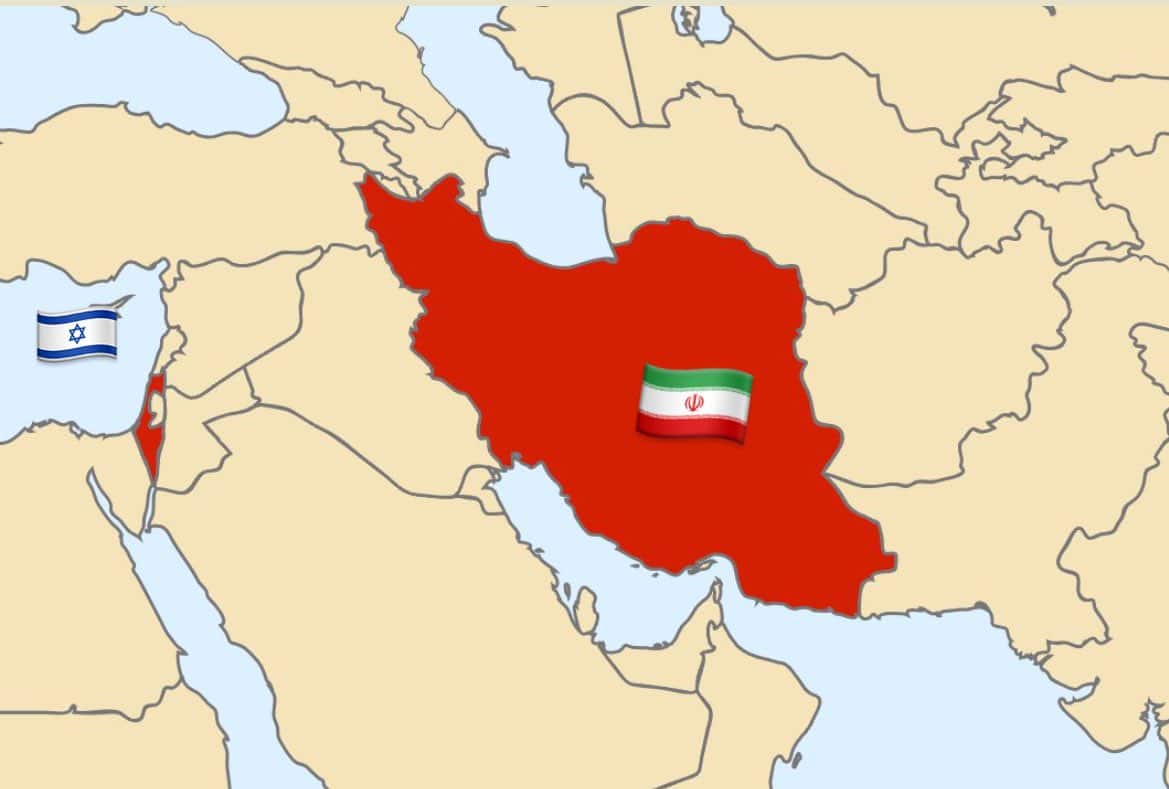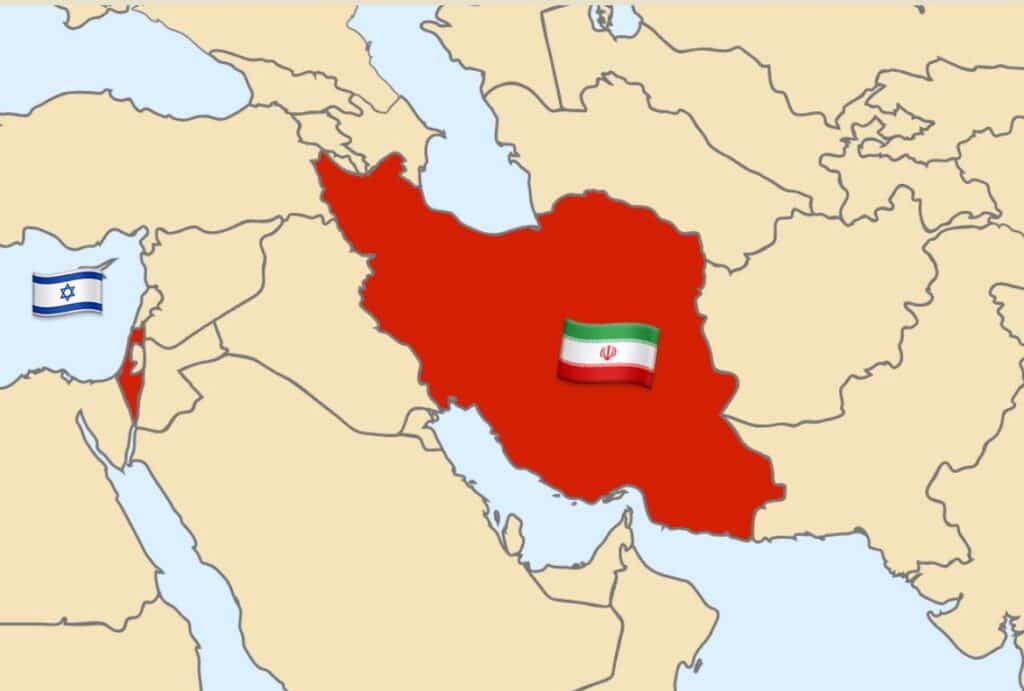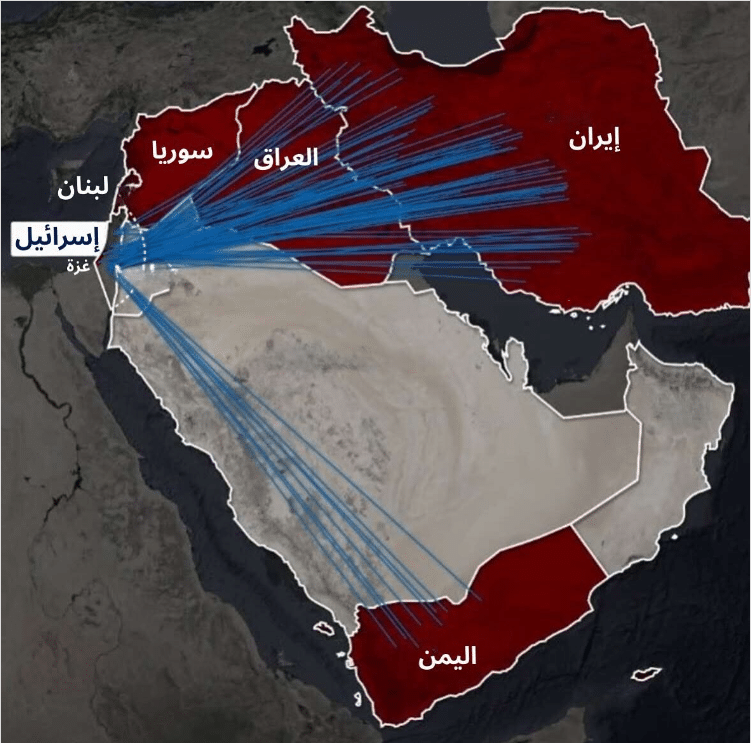CAPITAL BREACHED. MISSILE STRIKE CAPACITY CRIPPLED. Israel and the U.S. confirm that Israeli strikes destroyed Iranian missile fuel factories, crippling Iran’s ability to launch massive attacks on Israel. Over the weekend, Iranian leaders faced a stark reality: their capital is no longer untouchable. This breach marks the first time since the Iran-Iraq war in the 1980s that a foreign force has penetrated Tehran’s defenses, underscoring Israel’s resolve against Iran’s continued aggression. Other reports suggest that Iran’s air defense systems have been degraded, leaving its airspace more vulnerable to potential future Israeli action if needed.
Damage-Control Weekend In Iran. The regime went immediately into damage control: regime’s media downplayed the attack, warned Iranian citizens against uploading proof of damage to social media, and churned out posts and videos to glorify the country’s air defense. Interestingly, the Arab media and Iranian opposition journalists recognized this spin, and Israeli officials made Iran’s mission to spin what happened even harder with statements like this one by Israeli Prime Minister Benjamin Netanyahu: “Attack on Iran was precise, powerful, and achieved all goals.”
Israel Establishes Deterrence. Getting increasingly targeted by Iran and its proxies for a year, Israel reestablishes deterrence after this attack. A senior Israeli foreign ministry official, David Saranga, said after the strike: “We will do whatever necessary to defend the State of Israel and the people of Israel.” He added, posting the map below that shows Israel and Iran: “Like every other sovereign country in the world, Israel has the right and the duty to respond.”
October 7 Was Always About Iranian Proxies, Including Hamas. Israel is clearly messaging this after the strike. Here is an ‘Israel in Arabic’ web page run by the Israeli Foreign Ministry that posted a map that demonstrates how Israel is defending itself against Iran and proxies operating from Lebanon, Syria, Iraq, and Yemen.
‘EGYPT, UAE, SAUDI ARABIA QUIETLY BACK ISRAEL.’ Zvika Klein, the editor in chief of Jerusalem Post, explained in an analysis in the paper how Saudi Arabia, the UAE, and Egypt quietly back Israel on Iran, based on an analysis of those countries’ reactions. “These responses were notably measured,” said the Post, “almost neutral, hinting that a quiet shift may be underway among these regional powers.”
Egyptian Foreign Minister Shakes Up His Iranian Counterpart In Phone Exchange. On Sunday, Egyptian Foreign Minister Badr Abdelatty called Iran’s top diplomat Abbas Araghchi. Both nations do not have diplomatic ties, but Iran recently reached out to seek Egyptian help to avert a major Israeli military strike, and this has facilitated this type of communications between the two. The language of the official Egyptian readout was intensely diplomatic, but it included two key points the Egyptian official conveyed to Iran: that Tehran should avoid “dragging the region to a regional war” and that Iran should let Lebanon elect a neutral president “without any dictations.”
Regional Diplomacy Resumes to secure some form of a deal to release some Israeli hostages and possibly some Palestinian prisoners. Nothing concrete yet as of Monday as American, Israeli, Egyptian, and Qatari officials meet in both the Egyptian and Qatari capitals.
ICYMI— Don’t miss our insightful official response to Israel’s strike on Iran on Saturday. Click on the title: ISRAEL’S MILITARY RESPONSE TO IRAN.








